Top ICC prosecutor vows swift probe into Myanmar's genocide against Rohingya Muslims
The International Criminal Court (ICC) has pledged to speed up efforts to launch a probe into the widely reported atrocities committed by Myanmar's military and radical Buddhist mobs against hundreds of thousands of the country's minority Rohingya Muslims.
ICC's Chief Prosecutor Karim Khan made the remarks on Friday after meeting survivors of the genocide in Bangladesh since arriving in capital Dhaka on Tuesday for a four-day visit aimed at hearing testimonies of those affected by the extreme violence -- including systemic murders, torture, gang rape, arson, forced deportation and ethnic cleansing, among other forms of mass persecution -- as part of the proceedings of a legal case against Myanmar's junta leaders.
He met the survivors in Cox’s Bazar, the world’s largest refugee settlement, which hosts nearly one million Rohingya, most of whom fled Myanmar’s Rakhine state during a military-led crackdown in 2017.
Local media cited one of the women interviewed by Khan as testifying that she and many other women she knew had been raped and their relatives killed in Myanmar.
“There is heartbreak in these camps,” he said after visiting refugee camps in Cox’s Bazar, in what is known as the world’s largest refugee settlement.
Khan further told reporters in Dhaka that he hoped to be back in Bangladesh next year to speak to more victims.
“What I can promise is that we will have results,” he proclaimed despite taking months to return to the refugee camp for more interviews. “The team will be working hard, we’ll try to accelerate it and we will move forward.”
It has been nearly six years since hundreds of thousands of minority Rohingya Muslims fled Myanmar and have been living in squalid and overcrowded refugee camps in Bangladesh.
The Royingya Muslims fled from the brutal attacks by military forces joined by Buddhist extremists in Myanmar’s western Rakhine state that began in August 2017, which the then-UN human rights chief had described as a "textbook case of ethnic cleansing."
In 2018, an independent UN fact-finding mission reported widespread killings, rape and village burnings in which the Myanmar military was accused of targeting Rohingya with “genocidal intent.”
After the reports, ICC judges in 2019 authorized an investigation into the events, saying there existed a “reasonable basis to believe widespread and/or systematic acts of violence may have been committed that could qualify as crimes against humanity.”
Khan also thanked the Bangladeshi people for hosting and providing humanitarian support to the Rohingya, although their country is not a signatory to the 1951 UN Refugee Convention.
“I really wish to thank and applaud and congratulate every single Bangladeshi, because your heart, your generosity in the hour of need has saved lives,” he added. “It is only by the willingness of Bangladesh, holding up the flag of justice as its own that we have jurisdiction to investigate the crimes against the Rohingya.”
This is while the UN High Commissioner for Human Rights Volker Turk declared on Thursday that Myanmar continues “its deadly freefall into even deeper violence and heartbreak” and that the military junta, which seized power in a 2021 coup, relies on “systematic control tactics, fear and terror.”
Meanwhile, a United Nations decision last month to slash food rations for the Rohingya refugee families in Bangladesh, who are entirely dependent on international aid, could exacerbate their already dire conditions.
In this regard, a prominent Rohingya campaigner said the UN decision could have “serious and far-reaching consequences.”
Nay San Lwin, co-founder of Free Rohingya Coalition, said there is an increased risk of acute malnutrition among the Rohingya population, with limited access to food, particularly among vulnerable groups such as children and pregnant women.
“Unfortunately, this decision leaves the Rohingya refugees with no alternative but to contemplate participating in the so-called repatriation process. When people are left with no choices, they may feel compelled to do anything to ensure their survival,” he remarked.
“As a result, many could fall victim to human traffickers and be trafficked to other countries. The reduction in rations will have severe consequences for the Rohingya community, potentially leading to its complete destruction. This decision carries significant risks and jeopardizes the well-being and future of the Rohingya people.”
Lwin said he always expresses “gratitude” for the efforts made by Bangladeshi authorities “in providing shelter for the Rohingya” after they were forced to leave their home country.
Trump administration moved to cut funding for ICE body cameras
VIDEO | Qeshm: Iran’s biggest island boasts 1st UNESCO geopark in region
VIDEO | People in Spain’s Granada mobilize against Gaza genocide, US imperialism
VIDEO | Thousands protest in Brussels over austerity measures
Kata’ib Hezbollah asks fighters to prepare for 'war' in support of Iran
Israeli warplanes conduct new aggressions across southern Lebanon
VIDEO | Possible US-Israeli aggression on Iran
VIDEO | US deadly protest crackdown


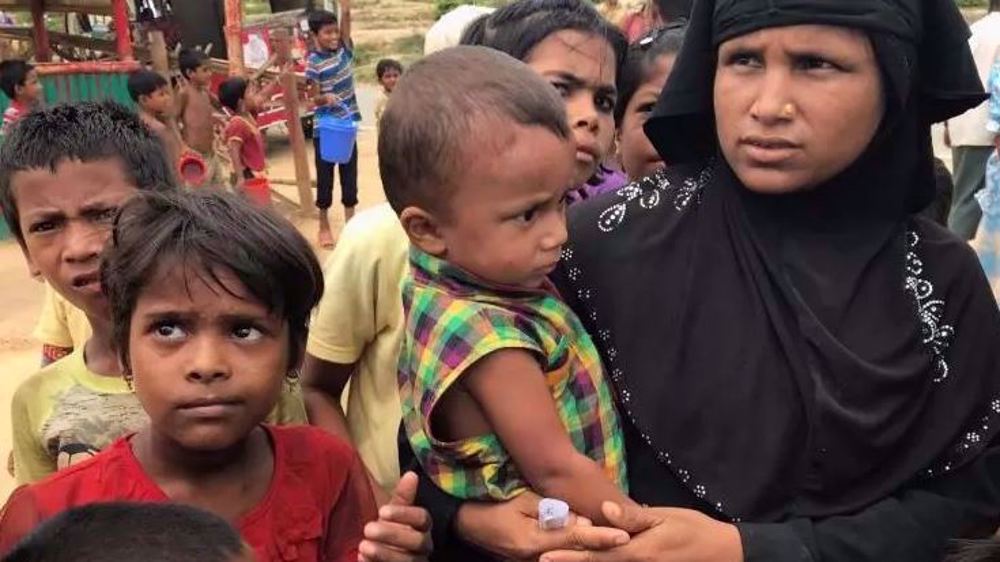
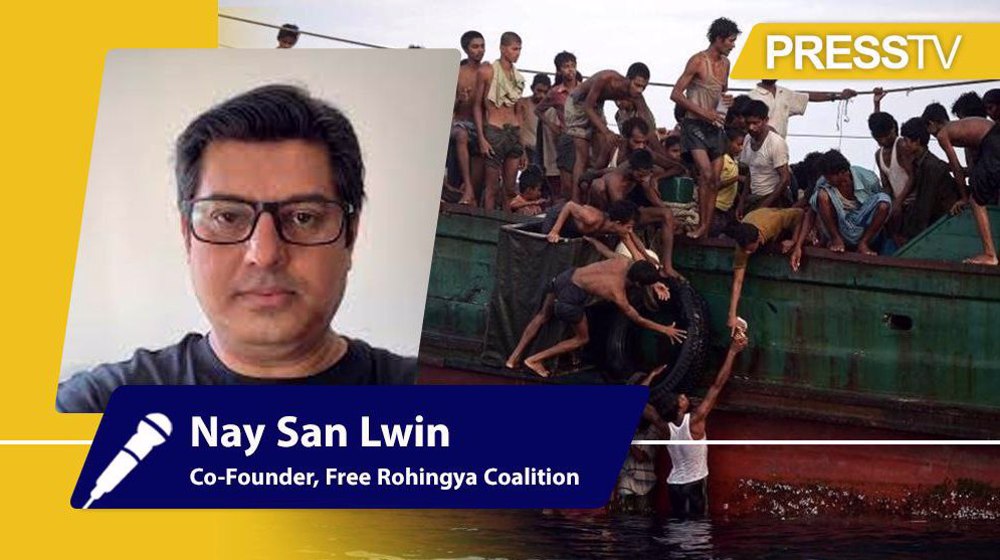


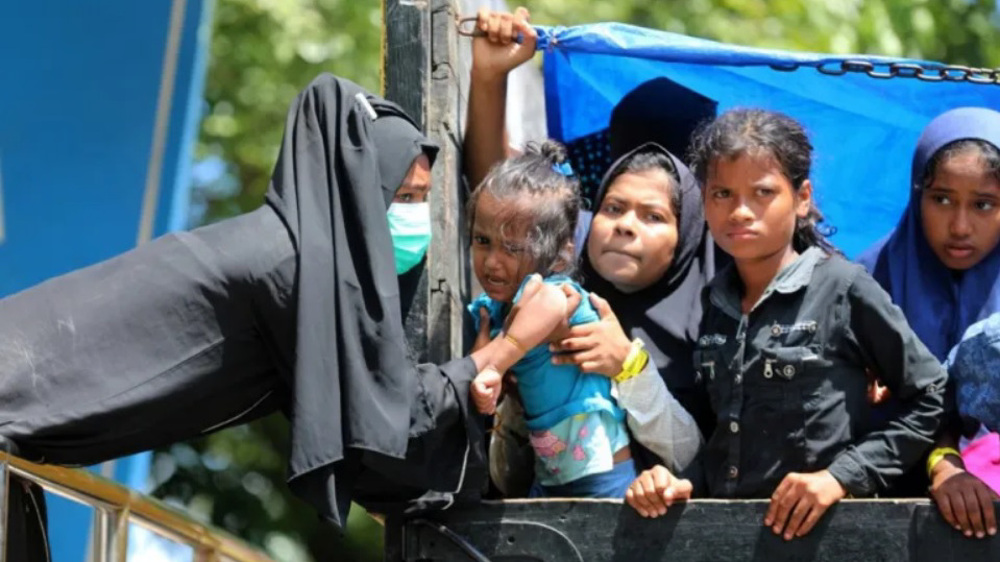



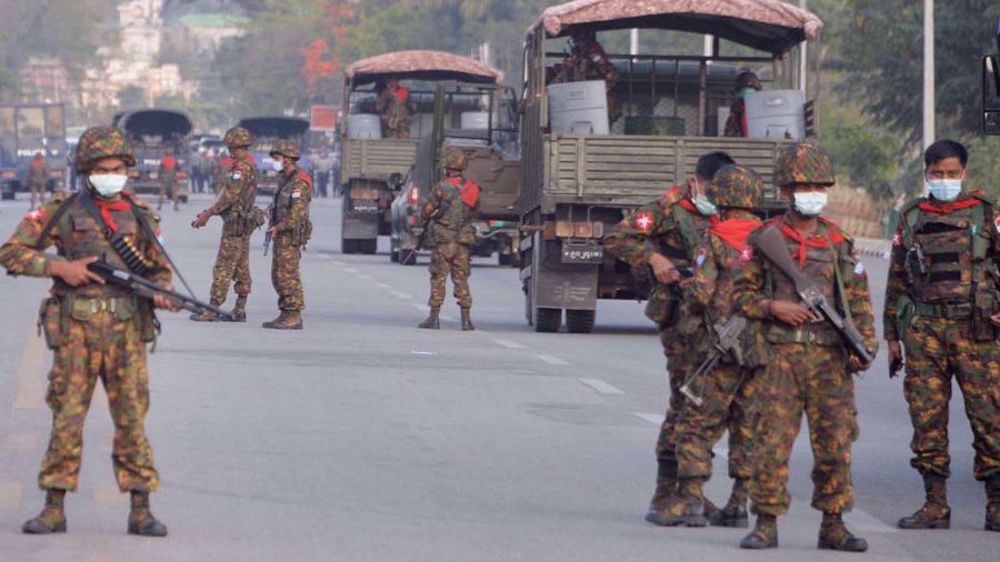
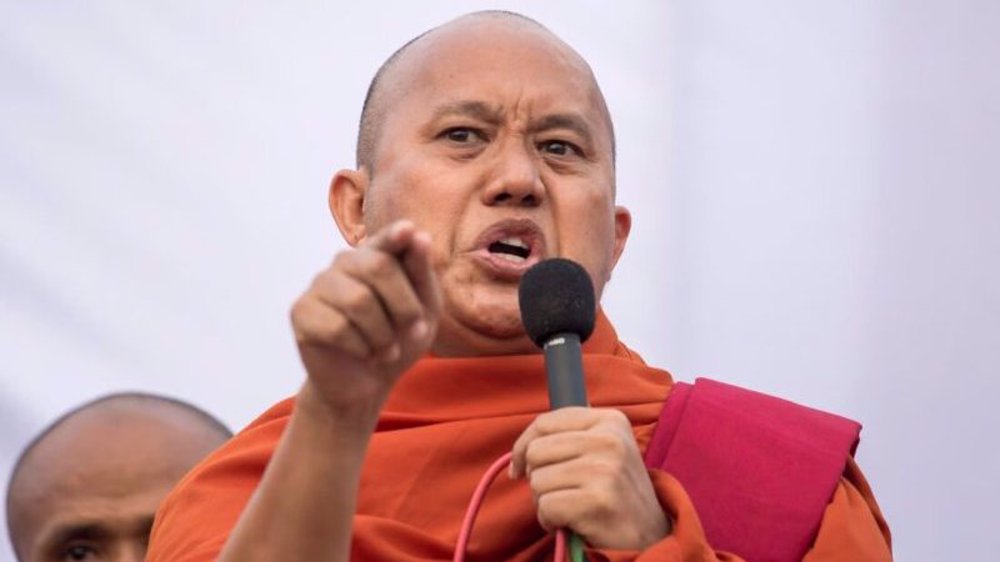
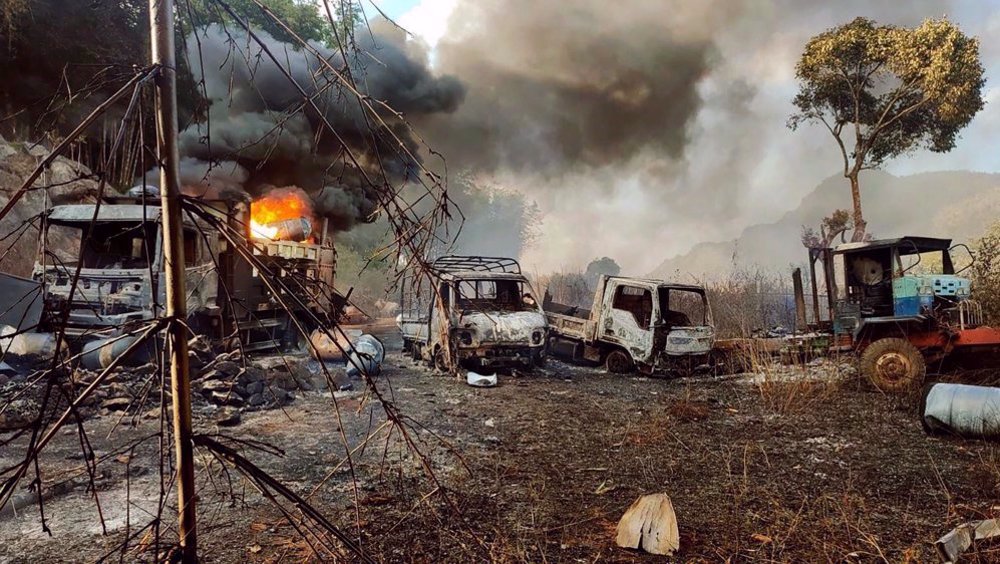
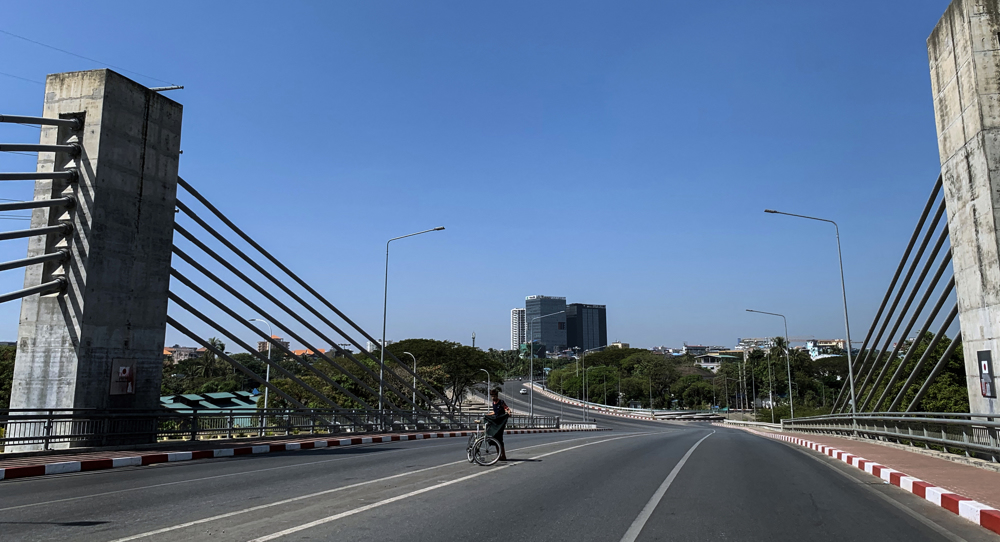

 This makes it easy to access the Press TV website
This makes it easy to access the Press TV website